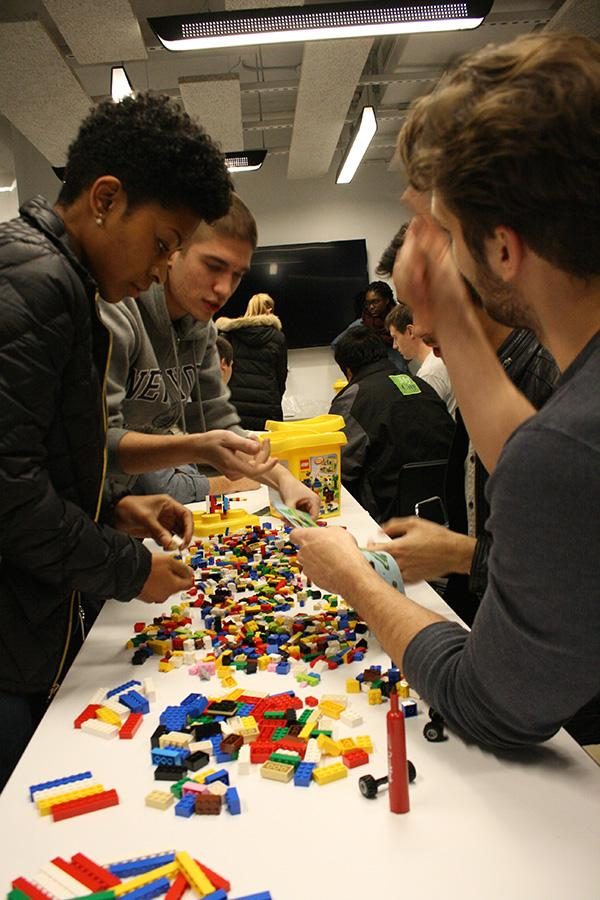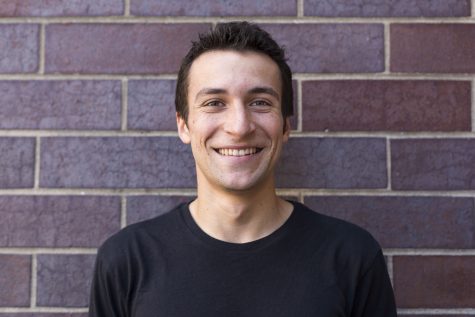Hacking event capitalizes on Bitcoin
November 17, 2014
A 24-hour Bitcoin hackathon hosted by the NYU’s Leslie Entrepreneurs Lab gave college students an opportunity to find innovative ways to incorporate Bitcoin into various platforms. The hackathon, which took place on Nov. 14 and 15, was the first of its kind to be hosted by NYU and featured nine teams made up of students from NYU, Columbia University, Yale University, CUNY, The King’s College, Cornell University, Pace University and Ohio State University.
Bitcoin is a system that involves users mining — using software that creates bitcoins — for digital currency markers and selling them to the public, at which point they can be used to buy products. The system has seen a rise in popularity over the last two years, and developers are continually working to innovate and build around the system.
Students presented their final projects at the hackathon, which included games, financial management and transaction-processing applications involving Bitcoin.
Frank Rimalovski, executive director of the Leslie eLab, said not many of the students had much exposure to Bitcoin before the hackathon. He added that the eLab had three goals for the hackathon.
“One was to get students who might not otherwise work together to collaborate,” Rimalovski said. “The second was to get them some exposure to Bitcoin. The third was to get the startup community to come in here and to get the students to collaborate with them.”
The hackathon featured three sponsors — Bloomberg, Chain and Blockchain — who were brought in to give the participants experience working with companies directly involved in the finance and Bitcoin world.
Kevin Houk, a 19-year-old developer with Blockchain, explained to the students some of the systems they would be working with and let them bounce ideas off him. He said he felt it was important to help the students in a hands-on way and thought everyone benefited.
“Bitcoin is really popular now, and all the developers are shifting to develop on Bitcoin,” Houk said. “History has shown that where the developers go, there’s a direct lagged correlation with where all the consumers go. It’s only a matter of time before we see mainstream shifts.”
Jordan Frankfurt and Ryan Skinner, both juniors at King’s, created a “Space Invaders”-type game that allows users to accumulate points and cash out their bitcoins at the end. Their project won first place in the competition, earning them $1,500 worth of bitcoins.
“Our goal was to have fun and to learn something new,” Frankfurt said. “We did not go into this expecting to win or trying to win. People who like games, this will give them access into this whole new world of digital currency.”
A version of this article appeared in the Monday, Nov. 17 print edition. Email Alex Bazeley at [email protected].


























































































































































Cristobal Reasinger • Dec 3, 2014 at 4:26 am
The technique to attain Bitcoin uncomplicated and prompt no hasitation just be described as a a part of our forum and meet up with up with up with with legit bitcoin exchangers . and achieved your advertise or acquire orders . require a look at now https://freebitcoinforum.com/
Bob • Nov 17, 2014 at 10:05 am
You mentioned an Ohio State University, but you didn’t mention WHICH Ohio State University. Was it THE Ohio State University, or one of the other dozen or so?